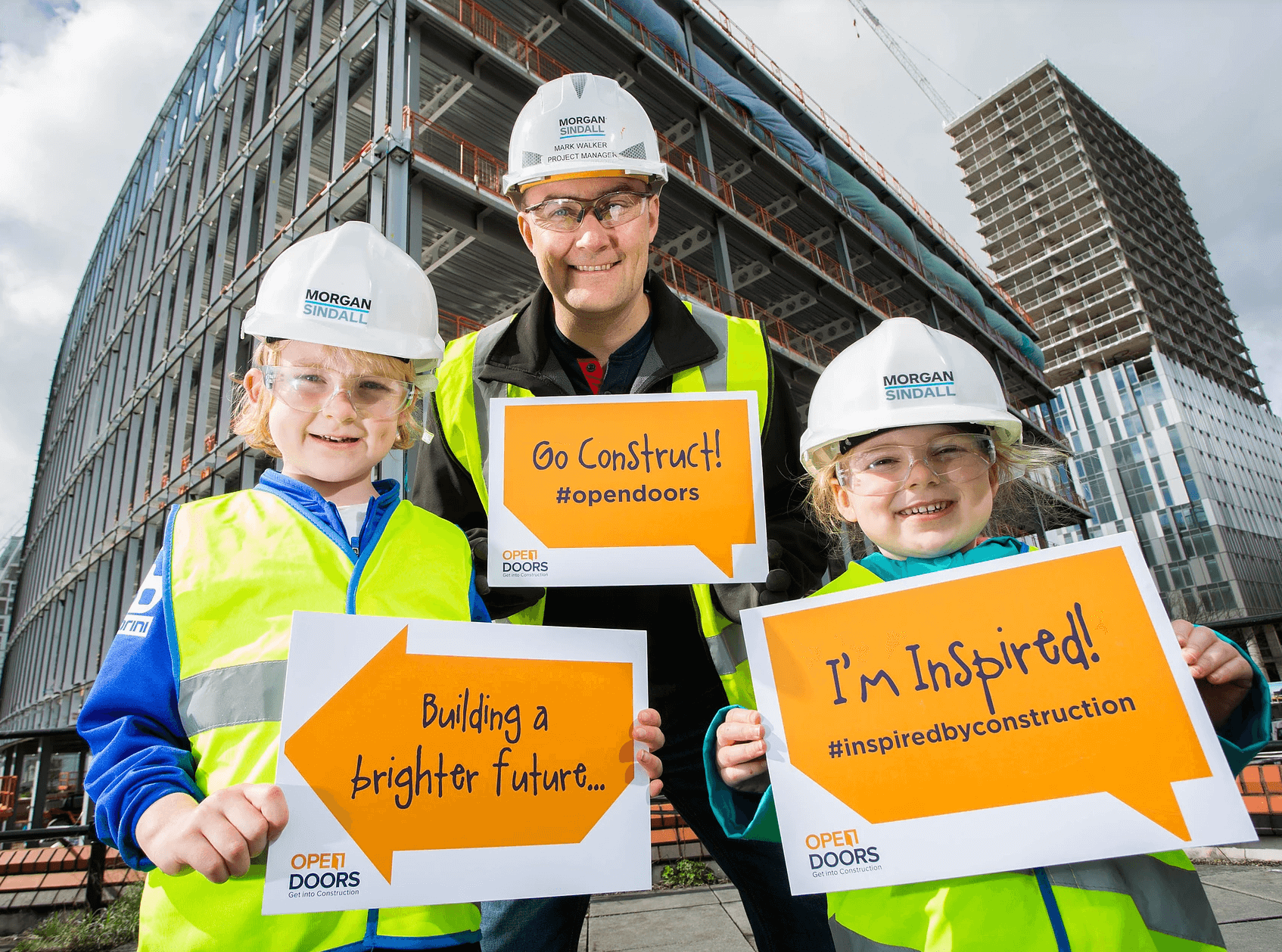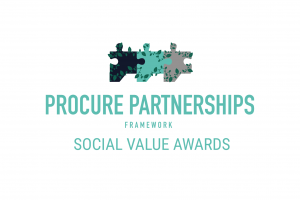The government is the largest purchaser of goods and services in the UK, spending over £280 billion on procurement annually and accounting for 40% of all UK construction spending. In the current economic climate and challenging times of austerity, achieving value for money is the primary concern when procuring public construction projects. When every pound is accountable, it may seem inevitable that the lowest cost will win and that factors such as Social Value which may be considered as ‘added extras’, will fall by the wayside.
But ultimately, when public sector bodies procure a new project, it is to improve services to the public and to positively impact local communities and, if delivered correctly, a Social Value programme can actually improve the whole life cost result of a construction project. In recent years there has been a huge shift in the perception of what value for money really means. Placing value ahead of cost when procuring construction works and recognising the indirect benefits that can be generated from each pound spent, can be highly advantageous for public sector bodies.
What is Social Value?
Social Value is about creating a positive legacy from construction works and harnessing the best possible value from the public money being spent. Successful outcomes can include:
- Increased training and employment opportunities for local people
- Increased opportunities for small local businesses and social enterprises to benefit from the project spend
- Additional improvements to local facilities which were not part of the contract, such as the improvement of local green spaces or the refurbishment of public buildings
- A reduced rate of crime and increased rate of rehabilitation
- A reduction in negative environmental effects resulting from the project
Social Value should be tailored to meet the needs of the community, so, for example, if there are high level of youth unemployment then work experience opportunities and training programmes could be delivered. Or, if there are high levels of homelessness in the community then engaging with and supporting a local charity or social enterprise which helps to address this issue would be beneficial.
In 2013 the Social Value Act came into force, designed to encourage those who commission public services to think about how they can also secure wider social, economic and environmental benefits. All English and some Welsh bodies are required to comply with the Act, including local authorities, government departments, NHS Trusts, CCGs, fire and rescue services, and housing associations.
The Act is deliberately flexible and does not contain a definitive list of what these social benefits should or could be. It rather grants procurement teams the freedom to consider the local context and need, and then to determine what kind of additional social or environmental value would best serve the needs of the local community.
Harnessing the value from every public pound
In moving away from a ‘cheapest price wins’ culture, the construction industry has seen a monumental shift in culture over preceding years. More than ever before, contractors are geared up to deliver Social Value initiatives in innovative and engaging ways. Public bodies can capitalise on this expertise to push the boundaries on what can be achieved and to then demonstrate to the public the total whole life value and on-going positive legacy of a project. For example, engaging a contractor with extensive experience of providing work experience placements and apprenticeships, will deliver a higher level of overall value for each pound spent and will help tackle residual health and social issues in areas of high youth unemployment. And, if considered early in the planning process, these results are tangible and can be easily measured to demonstrate successful project outcomes to help further engage the local community.
Not just a ‘tick in the box’
Whilst project budgets remain tight, assumptions might be made that Social Value will be seen by contractors as a ‘tick in the box’ during the procurement process. There are, however, many important reasons why contractors support and champion Social Value programmes. It is widely recognised by contractors that supporting communities throughout construction works will have positive outcomes for both their own business and for the wider construction industry, through;
- Increased job creation, new apprenticeships and new trainees, which in turn bring to the industry new ideas, new talents and a more diverse workforce.
- Tackling the skills crisis through work experience opportunities and educational career programmes in schools, colleges and universities, to help change the image of the industry. These educational opportunities help contractors to embrace and push the boundaries in digital technologies, including BIM, robotics and virtual reality.
- A stronger relationship with the supply chain based on trust and shared objectives, and the promotion of local economic growth.
- An improved image of the contractor organisation and improved community relations.
For the construction teams who will deliver the services, the ability to effectively deliver Social Value is now viewed as a route to achieve a competitive advantage with both public and private clients. Promoting Social Value demonstrates a contractor’s individual accountability in raising the profile of the industry and in helping to address some of the major challenges that the industry currently faces.
Early engagement to achieve Social Value
Early consideration of what Social Value means to the local community and an engagement strategy to verify these findings, are critical to successfully deliver a programme which is truly relevant and beneficial. This can be achieved through early dialogue with both the service users and the potential bidders before the procurement process commences. This process can help contracting authorities to learn not only about what social project may benefit the local community, but also to learn about the capabilities of the potential bidding contractors and to understand their readiness to support social projects.
Engaging a contractor through a procurement framework such as Procure Partnerships allows public sector bodies to work with pre-approved contractors who are skilled and experienced at delivering Social Value. Early engagement with both the contractors and the Procure North West framework team allows the public sector to harness this expertise, and to access a structured approach to Social Value reporting through a suite of Social Value KPIs. This collaborative approach allows the whole team to deliver a meaningful and long-lasting impact on the local community.

Natalie Palframan, the Key Account Manager for the North of England at PPF, boasts nearly a decade of invaluable experience within the construction industry. In her dynamic role, Natalie has spent three impactful years at PPF, where her passion lies in closely collaborating with public sector clients across the North, providing expert advice and guidance for their projects.



